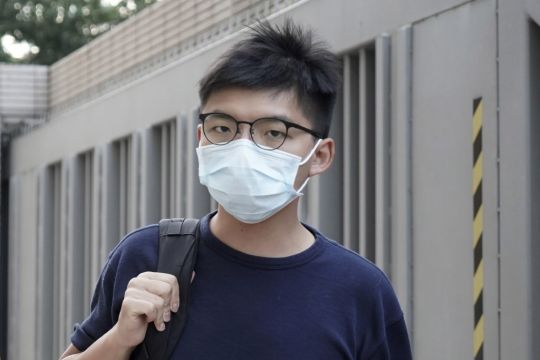Authorities in Chinese-controlled Hong Kong say 29 out of 47 pro-democracy activists charged with “conspiracy to commit subversion” under a tough National Security Law entered guilty pleas on Thursday.
The news came as the Beijing government seeks to further silence opposition voices in the regional financial hub.
Thursday’s court proceedings follow a sweeping campaign against those speaking out against demands for absolute loyalty to China’s ruling Communist Party.
The 47 democracy activists, aged 23 to 64, were charged with conspiracy to commit subversion under the Beijing-imposed National Security Law and detained last year over their involvement in an unofficial primary election in 2020 that authorities said was a plot to paralyse Hong Kong’s government.
The primary showed strong support for candidates willing to challenge the Beijing-backed local government.
Among those making guilty pleas were well-known political activists including Joshua Wong and Benny Tai, Hong Kong media said.
Media reporting restrictions were lifted for the cases, which will start next month at Hong Kong’s high court.

Hong Kong was handed over from British to Chinese rule in 1997 with a pledge that it would retain its own legal, economic and social systems for 50 years.
Despite the steady deterioration of those special rights promised to the territory under a “one country, two systems” framework, it retains the system of British common law, independent from Communist Party dictates that determine legal outcomes on the mainland.
During Thursday’s hearing, Wong, who remains in detention, said the primary election allowed people from Hong Kong to express their political will.
“Our vote is our voice, being heard in the global community,” Wong said.

About 2,000 Hong Kong residents have been detained and the main opposition Apple Daily newspaper shut down since 2019 pro-democracy protests.
More have been arrested over ensuing actions, including 90-year-old Catholic cardinal Joseph Zen, while political speech and public gatherings have been frozen by uncertainty about where the authorities’ red lines are set.
China responded to the protests by imposing the sweeping National Security Law, rounding up opposition figures in the media and civil society, and reorganising the local legislative council to ensure only pro-Beijing figures could hold office.







